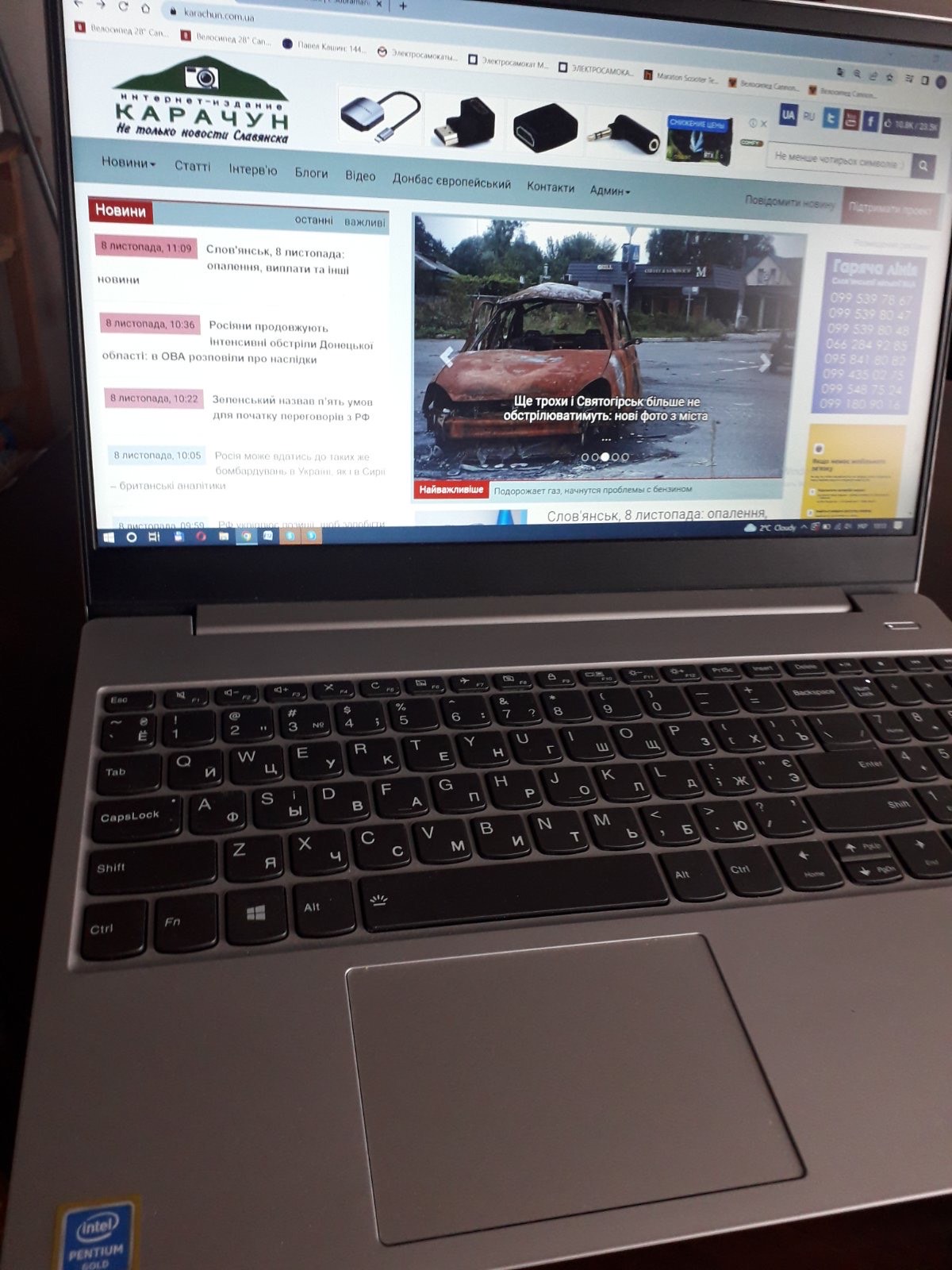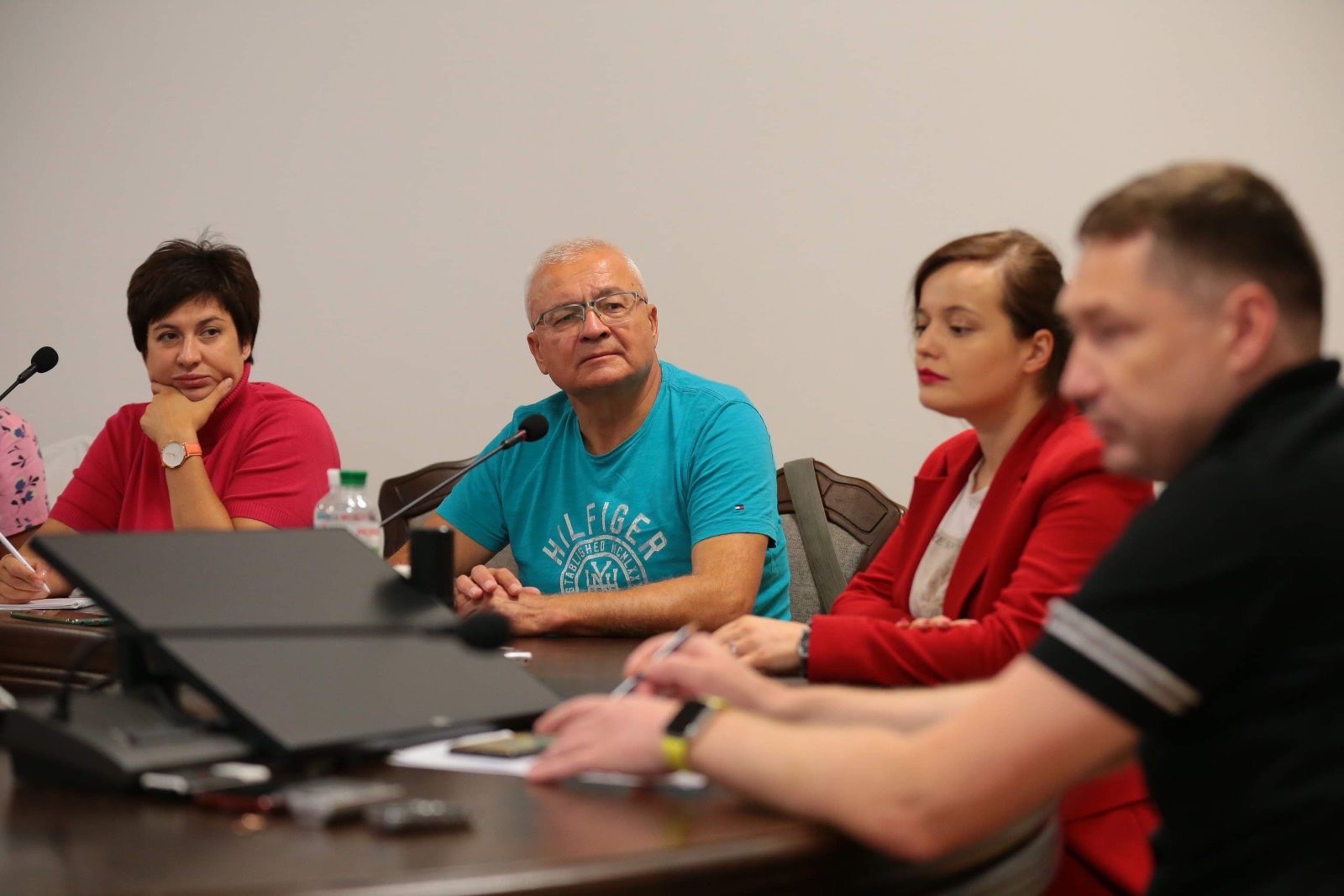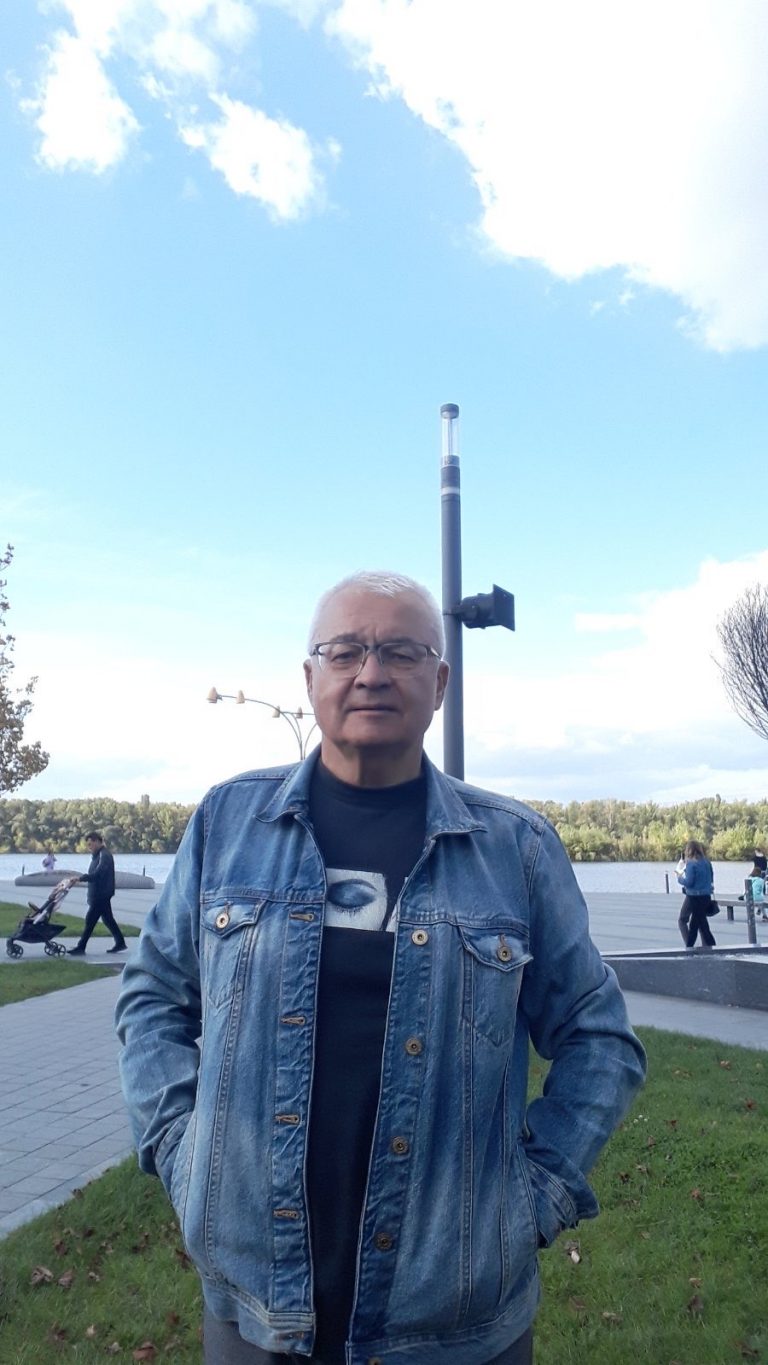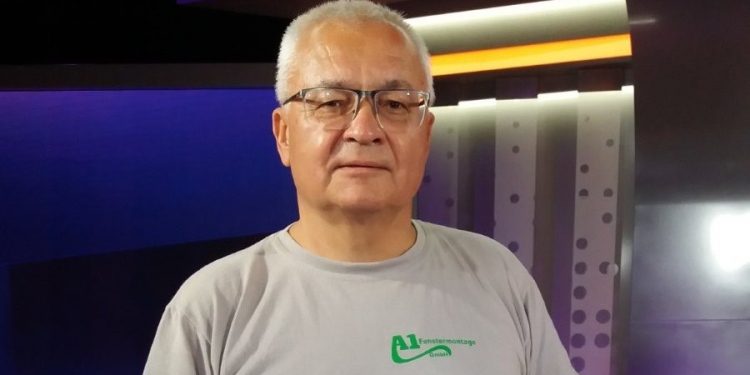Oleksandr Kulbaka, editor-in-chief of the Sloviyansk newspaper “Visti” and a journalist for the “Karachun” website, hails from a family of journalists. He, along with his wife and son, dedicated years to working on the publications of Donetsk Oblast’s oldest newspaper and developing their digital media platform. However, the onset of the full-scale war forced him to leave his home, casting uncertainty over the newspaper’s future—a publication that had been serving residents of northern Donetsk Oblast since 1917.
Oleksandr, like most Ukrainians, initially didn’t believe in the outbreak of a full-scale war.
— I was convinced that Putin wouldn’t dare to attack all of Ukraine, — says Oleksandr Kulbaka. — Moreover, I remembered President of Ukraine Volodymyr Zelenskiy saying that in May, we’d be having barbecues. We were reassured in every possible way that there would be no large-scale invasion. So, I was completely calm. In our newspaper, we wrote that there was no need to panic, no need to escalate the situation. In other words, we pursued an information policy in line with the state’s policy at the time. Therefore, the news that Russia had attacked Ukraine caught us by surprise.
It was a Thursday, the day when the “Visti” newspaper, printed in the neighboring Kramatorsk, about 20 km from Sloviyansk, was released. Usually, the fresh issue was collected from the printing house around 5:30 AM. But that morning was different.
— At 5 o’clock, my son, who was working in the editorial office and was supposed to bring the retail edition of the newspaper from the printing house, called. He woke me up and said that Putin had just announced this so-called ‘special military operation,’ that rockets were being fired at all of Ukraine, that Kramatorsk had been shelled, and he asked what to do next. I told him not to go for the newspapers,— recalls Oleksandr, reminiscing about the recent past.
The February issue of “Visti,” a newspaper that had been published since 1917, became the last one. Evacuation of the population began in the city, but journalists stayed in their positions.

— The editorial team remained in Sloviyansk for nearly another month, with the newspaper temporarily on hold, but the ‘Karachun’ website continued its operations. It’s a family-run business, with my son and wife being journalists who founded and developed the ‘Karachun’ online publication in 2016. When the war began, we used ‘Karachun’ to keep residents informed. The website never stopped, and the demand for information increased significantly with the war’s onset, prompting them to continue working even after their evacuation from Sloviyansk in late March.

“We didn’t face our problems alone.”
Oleksander and his family left their hometown as the frontline approached Sloviyansk due to the escalating conflict. They initially sought refuge in the Dnipropetrovsk region, expecting a brief stay, but their plans changed as the war persisted.
Life was challenging for Oleksander and other displaced people at their new location, both emotionally and financially. Adapting to a different environment and dealing with housing expenses and various daily issues were not easy. However, they received support from the National Union of Journalists of Ukraine and assistance from international organizations. This support allowed two of their journalists to receive salaries for several months, and they even received funds to purchase a laptop.

The war compelled the Kulbak family to move their media business, but in Sloviyansk, they maintained sources of information and local connections that allowed them to report news promptly. Oleksander recognized the need for not only war-related topics but also positive news and stories, such as how displaced people were adapting to new places and the interesting developments in different communities.
— At the invitation of the Kharkiv Press Club, I traveled to the Poltava region, which felt like a return to pre-war life. Meeting with colleagues filled me with joy. During those two days, I gathered a wealth of valuable information, filling my journalist’s notepad. Upon returning to the office, I enthusiastically shared my experience, including a visit to the Reshetilivka Museum. Some questioned its relevance in wartime, but I persisted, wrote a report, and published it on ‘Karachun.’ Surprisingly, it quickly garnered over five thousand views, a significant feat compared to our usual local-themed materials, which usually get around three to four thousand views. I later traveled to Lviv. I firmly believe that journalists should explore, stay curious, and seek new stories. Journalists should lead an active life; otherwise, it might be time to consider a career change.
“Very much looking forward to going home, especially as life in Sloviyansk is gradually returning.”
Regarding his professional plans for the future, Oleksander is cautious. He believes he no longer sees a future for his printed newspaper. Even before the war, newspaper offices faced financial problems, and with the onset of the war, the situation became extremely challenging.
— I am pessimistic about the future of my newspaper, although today it is the oldest printed publication in the Donetsk region, with its history dating back to September 10, 1917, — says the media professional. — The publication doesn’t enjoy any preferences but, like most regional newspapers in Ukraine, faces numerous financial problems. Many of our readers have dispersed around the world. Some will return after the war, while others won’t. Meanwhile, paper and printing costs have nearly doubled! I believe more in the prospects of the ‘Karachun’ website. We are developing various platforms for it and actively promoting it on social media. Of course, it’s extremely challenging for all publications to survive today, as the advertising market has significantly declined. Therefore, currently, those media outlets that managed to tap into grant projects are predominantly ‘staying afloat.’

The war forced Oleksander and his family to leave their hometown of Sloviyansk. The war partially destroyed the foundation of their lives. However, it did not take away their sense of home. Life has meaning where home is. The sun shines brighter where home is. So, Oleksander is convinced that the journey back home for every Ukrainian is challenging, but the day will come when it will definitely begin.
— Of course, we very much want to return home, and all our thoughts are about what it’s like there now. Especially since life in Sloviyansk is gradually getting back on track – utility companies, stores, and banks are operating. But the front is close, and Sloviyansk often comes under fire. Nearby towns and villages are constantly shelled. So, perhaps we’ll have to spend the winter here in Dnipropetrovsk. But all our thoughts and dreams are about returning home, about the end of the war, and our victory, — concluded Oleksander Kulbak.
This series, titled Executed Free Speech, is created as part of a project Drawing Ukrainian And International Audience’s Attention To Serious Violations Of Human Rights And Crimes Against Journalists And Mass Media By The Russian Federation, which is performed by the National Union of Journalists of Ukraine, with support from the Swedish non-profit organization Civil Rights Defenders.
JOURNALISTS ARE IMPORTANT. Stories of Life and Work in Conditions of War is a cycle of materials prepared by the team of the NUJU with the support of the Swedish human rights organization Civil Rights Defenders.
#CRD

 THE NATIONAL UNION OF
JOURNALISTS OF UKRAINE
THE NATIONAL UNION OF
JOURNALISTS OF UKRAINE
















Discussion about this post